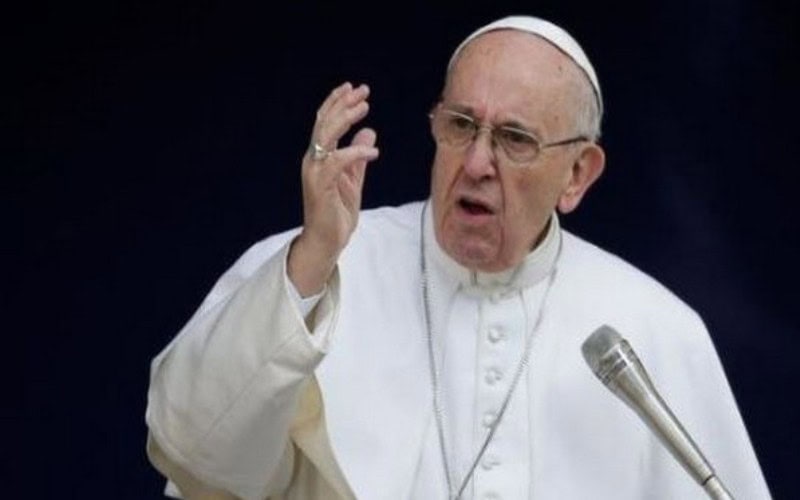Rabat: Pope Francis on Sunday warned Catholics in Morocco against trying to convert others to boost their small numbers, during a rare visit by a pontiff to the North African country.
Speaking in Rabat’s cathedral on his second day in the Moroccan capital, Francis insisted trying to convert people to one’s own belief “always leads to an impasse”.
“Please, no proselytism!” he told an audience of around 400, who greeted the pope’s arrival by ululating and applauding, while hundreds more gathered outside the cathedral.
Christians are a tiny minority in Morocco where 99 percent of the population is Muslim, with sub-Saharan Africans making up a large part of the country’s 30,000-strong Catholic community.
Islam is the state religion and authorities are keen to stress the country’s “religious tolerance” which allows Christians and Jews to worship freely.
But Moroccans are automatically considered Muslim if they are not born into the Jewish community, apostasy is socially frowned upon, and proselytising is criminalised.
“I protect Moroccan Jews as well as Christians from other countries, who are living in Morocco,” King Mohammed VI told crowds on Saturday, following the pontiff’s arrival.
There are a few thousand Christian converts in Morocco, who since 2017 have called openly for the right to live “without persecution” and “without discrimination”.
Francis is the first pontiff to visit the North African country since John Paul II in 1985 and the cathedral had been repainted for the occasion.
Waiting for the pope outside, a Nigerian man said the visit “shows that living together is possible in Morocco.”
But “there are things to improve, notably the question of migrants and that of Moroccan Christians,” said 36-year-old Antoine, who works for an association to defend migrant rights.
The need to support migrants was mentioned again Sunday by Francis, who has made the issue a focal point of his papacy.
On Saturday he visited migrants at a Caritas charity centre, where the pope criticised “collective expulsions” and said ways for migrants to regularise their status should be encouraged.
Morocco says it has a “humanistic” approach to migration and rejects allegations by rights groups of “brutal arrest campaigns” and “forced displacement” to the country’s southern border.
– Jerusalem declaration –
Earlier on Sunday, Francis visited a social centre run by nuns and volunteers near Rabat, including a health centre where he met with unwell children.
The previous day he visited an institute which hosts around 1,300 trainee imams and preachers.
There they heard from a French and a Nigerian student of the institute, which teaches “moderate Islam” and is backed by the king.
The Moroccan monarch also welcomed Francis to the royal palace, where the two addressed the “sacred character of Jerusalem” in a joint declaration.
The city should be a “symbol of peaceful coexistence” for Christians, Jews and Muslims, they said in a statement released by the Vatican.
“The specific multi-religious character, the spiritual dimension and the particular cultural identity of Jerusalem… must be protected and promoted,” said the text, which was jointly signed at Rabat’s royal palace.
The Moroccan king chairs a committee created by the Organisation of Islamic Cooperation to safeguard and restore Jerusalem’s religious, cultural and architectural heritage.
Jerusalem’s status is perhaps the most sensitive issue in the Israeli-Palestinian conflict.
Israel sees the entire city as its capital, while the Palestinians want the eastern sector as the capital of their future state.
US President Donald Trump sparked anger across the Muslim world when he recognised Jerusalem as Israel’s capital in 2017.
[source_without_link]AFP[/source_without_link]

